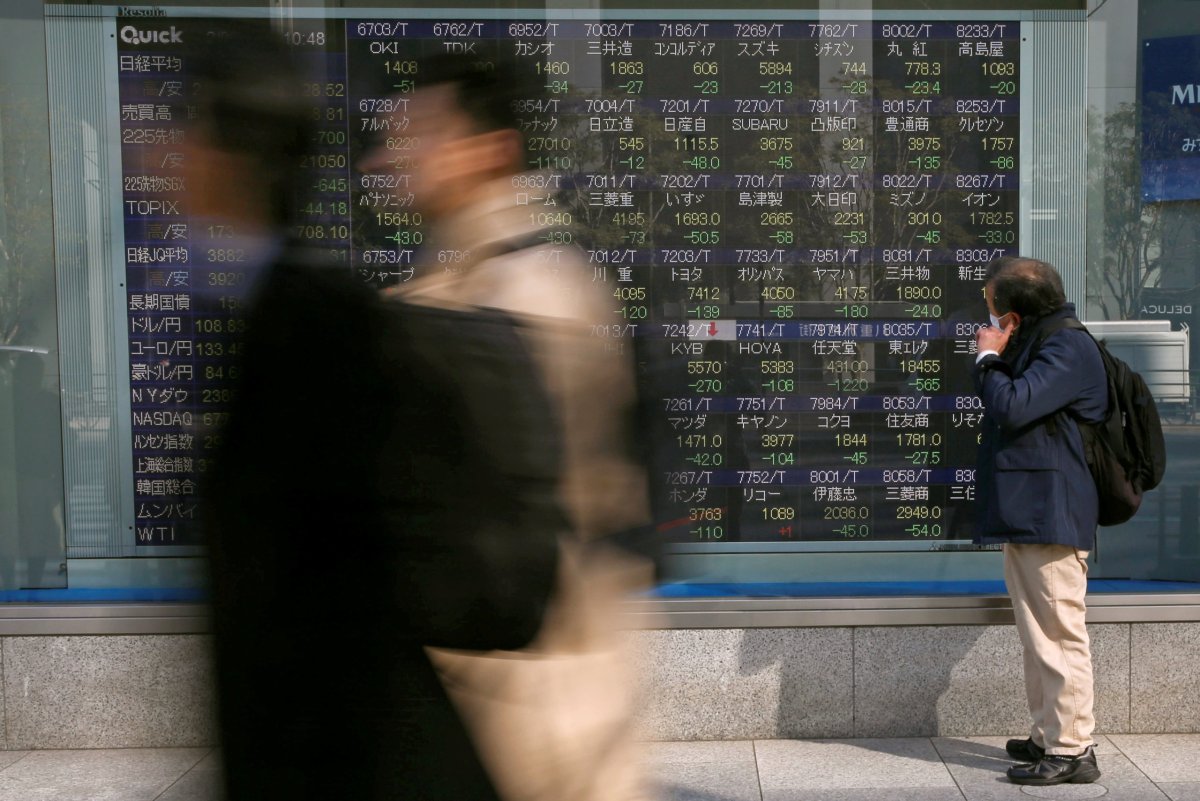By Wayne Cole
SYDNEY (Reuters) – Asian shares made guarded gains on Monday as investors braced for an event-packed week headlined by U.S. inflation data and the first House testimony by the new head of the Federal Reserve.
Spread betters also pointed to a stronger start for Europe and FTSE futures were already 0.5 percent higher.
But sentiment was fragile, with the dollar reversing its early rise and safe-haven bonds firming as E-Mini futures for the S&P 500 turned flat.
MSCI’s broadest index of Asia-Pacific shares outside Japan crept up 0.6 percent, with most bourses in the green.
Japan’s Nikkei led with an increase of 1.3 percent, while Chinese blue chips added 0.7 percent.
China’s ruling Communist Party on Sunday set the stage for President Xi Jinping to stay in office indefinitely, with a proposal to remove a constitutional clause limiting presidential service to just two terms in office.
Investors initially took heart from Friday’s rally on Wall Street which saw the VIX volatility index end at 16.49 percent, far below the 50 percent peak touched at the height of market turmoil in early February.
The mood has calmed partly thanks to expectations the Federal Reserve will stay gradual in its tightening, a measured outlook underlined by the central bank in a governors’ report released on Friday.
Investors also seem to be wagering that Fed Chairman Jerome Powell will stick to that script at his first appearance before the House on Tuesday, followed by testimony to the Senate on Thursday.
“Powell will be highly cognizant of the spike in risk aversion in late January and will be keen not to rock the boat too greatly,” argued Chris Weston, chief market strategist at broker IG.
“Futures markets on Friday were pricing in less implied policy tightening from the Fed in the years ahead, suggesting traders are not expecting Powell to signal a more aggressive response.”
WARY ON INFLATION
Yields on U.S. 10-year Treasuries had also backed off to 2.85 percent and away from a four-year top of 2.957 percent.
An added wrinkle is that the Fed’s favored measure of inflation, the core personal consumption expenditure (PCE) index, is out early on Thursday.
Markets will be hyper-sensitive to any hint of a pick-up in core inflation given the surprising strength of wages in January and Powell is certain to be questioned on the risks by Senators.
In currency markets, the U.S. dollar surrendered early gains to dip 0.2 percent on a basket of currencies to 89.730. That followed a 0.8 percent bounce last week.
It also retreated on the yen to reach 106.66, failing to hold an early 107.28 top amid selling by Japanese exporters for month-end.
The euro was firmer at $1.2314, just above last week’s trough at $1.2258, with ECB President Mario Draghi set to appear before the European Parliament later in the day.
Dealers were also looking ahead to the outcome of the Italian general election on March 4.
A German Social Democrats’ poll of its members on joining another coalition government with Chancellor Angela Merkel’s conservatives is also due that day, two big political risk events for markets.
In commodities, the lapse in the dollar helped spot gold bounce 0.6 percent to $1,336.94 per ounce.
Oil prices extended gains to hit their highest level in nearly three weeks on Monday, supported by comments from Saudi Arabia that it would continue to curb exports in line with the OPEC-led effort to cut global supplies.
U.S. crude futures added 25 cents to $63.80 a barrel, while Brent futures rose 15 cents to $67.46.
(Editing by Kim Coghill)

















